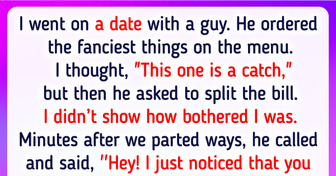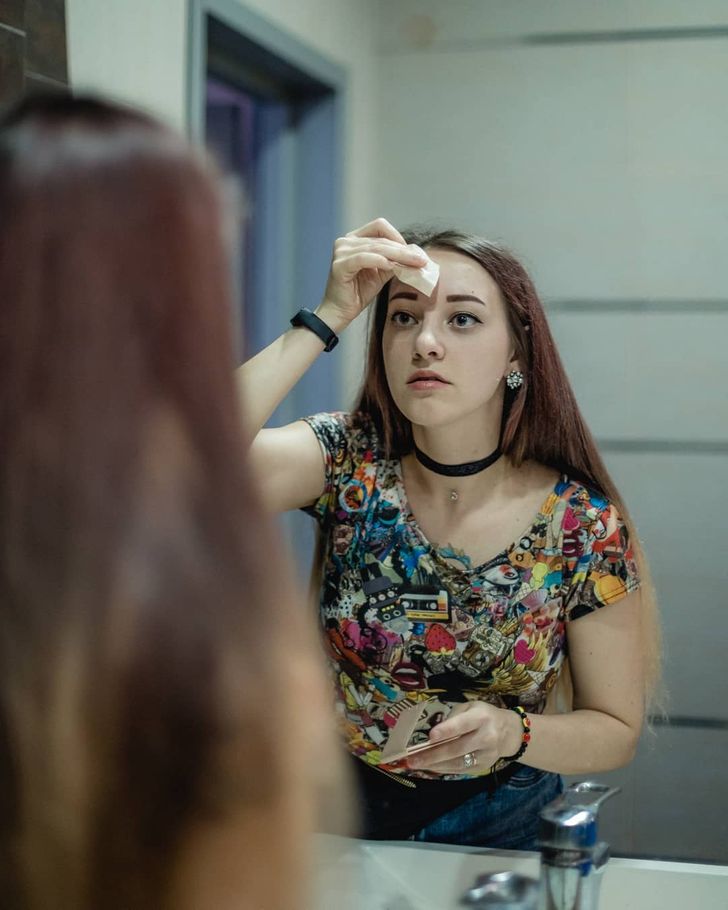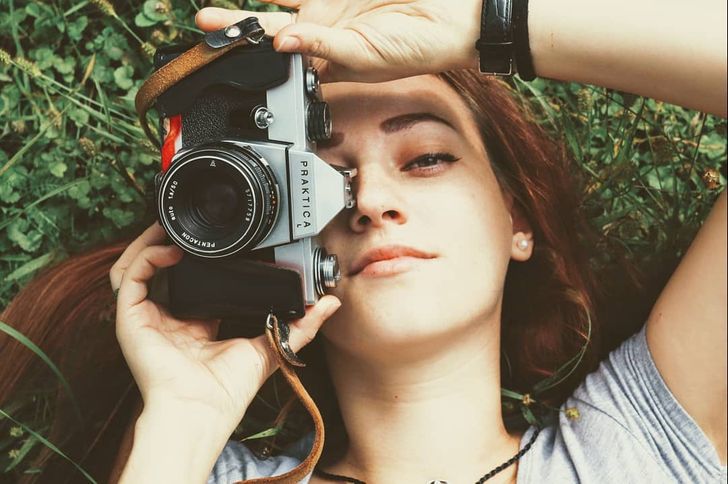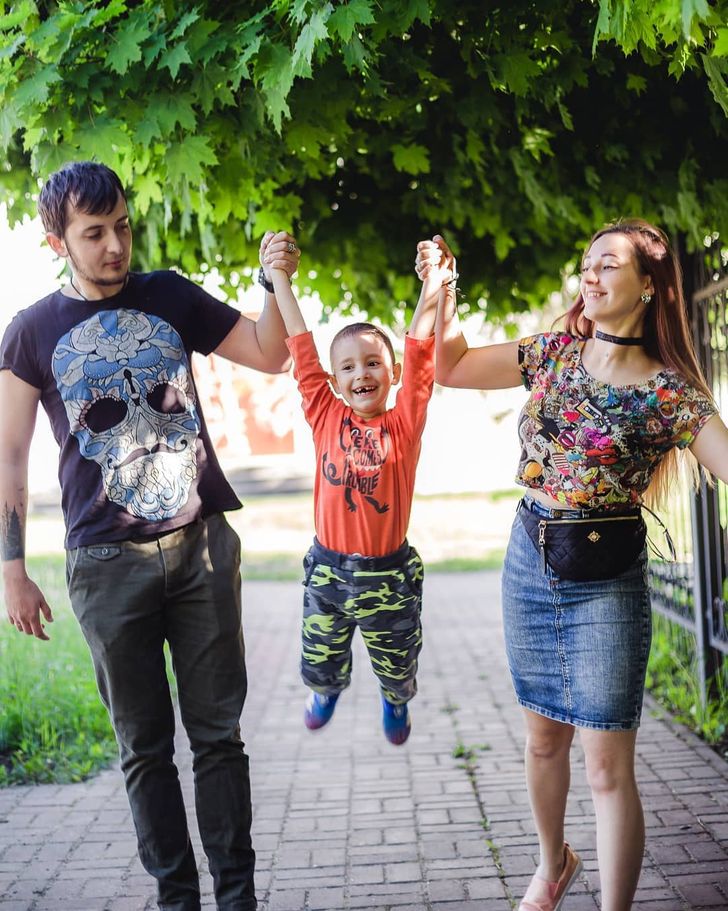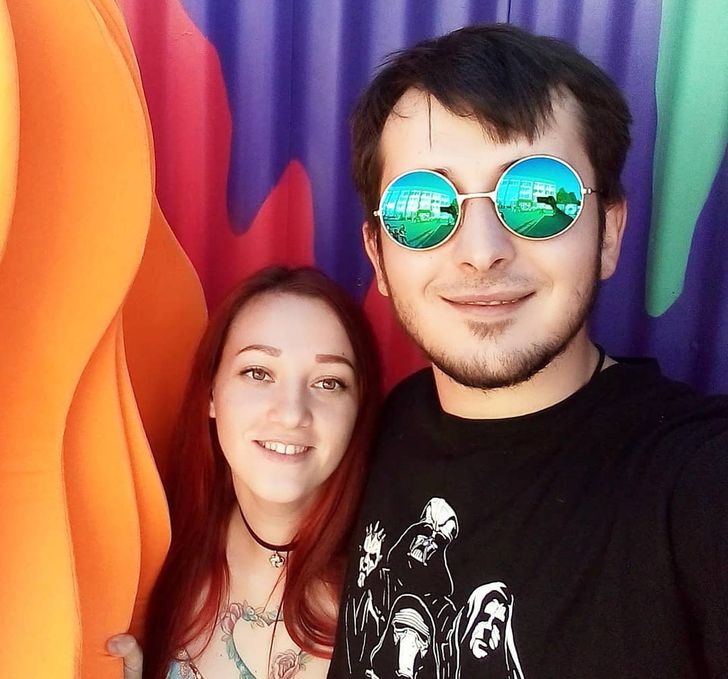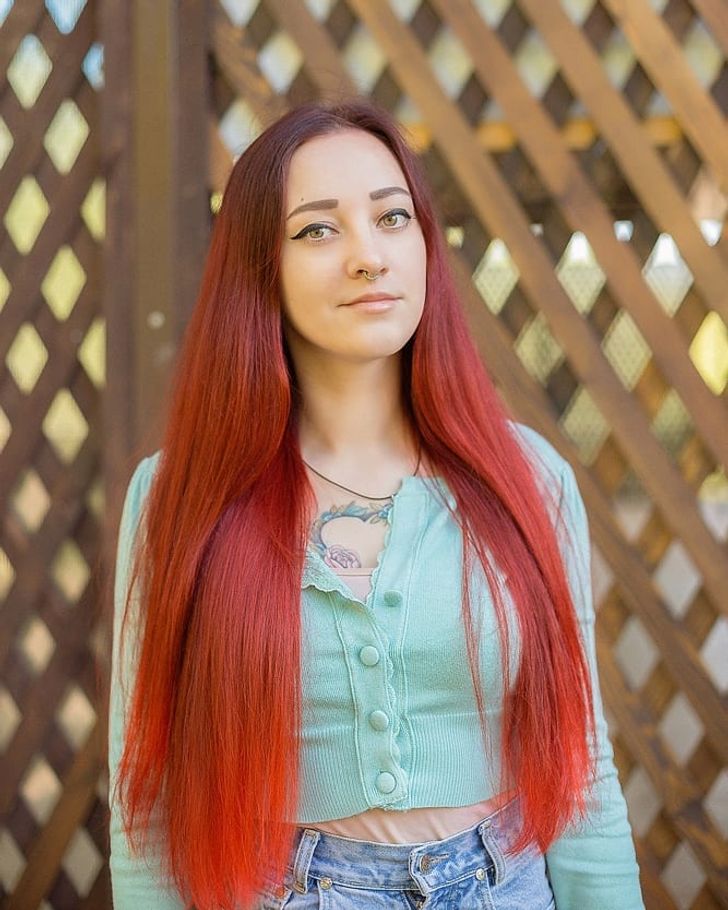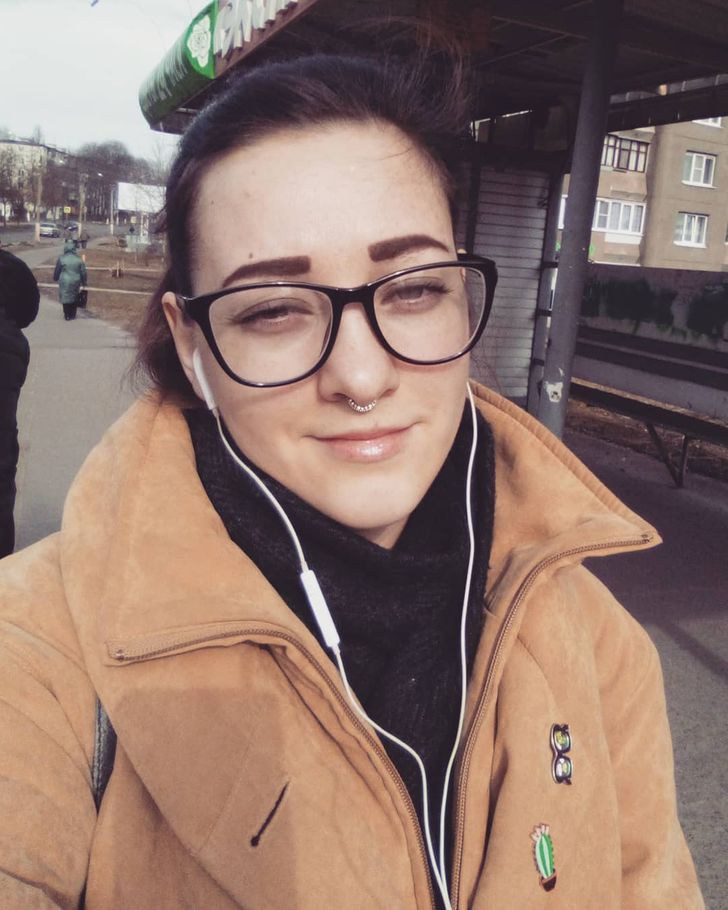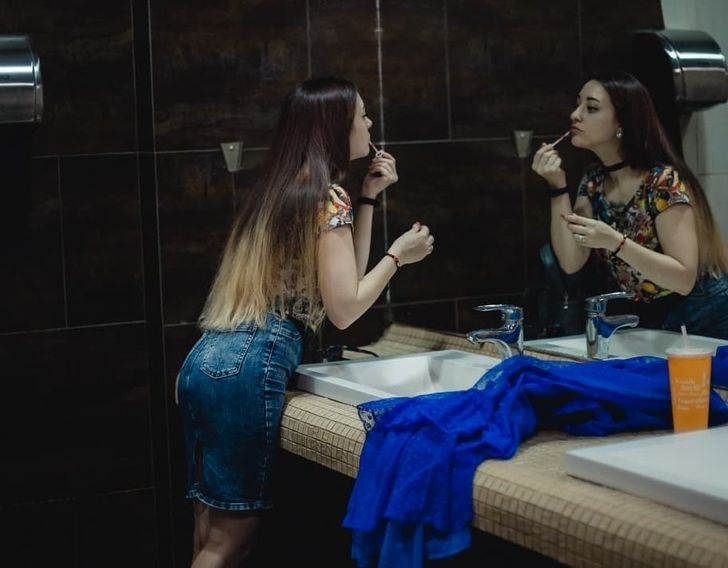So sad
How a Woman With Face Blindness, Who Can’t Even Remember the Face of Her Own Child, Lives
Elena may not be able to recognize her child among his peers. Every day, she tries to understand whether the man in front of her is her husband. This woman can’t remember faces. She even has to get to know her own face all over again every time she sees it in the mirror or in a photograph. This disorder is called prosopagnosia. It was mentioned, for example, in Alice Through the Looking Glass — when Humpty Dumpty says goodbye to Alice, he points out that he won’t be able to recognize her when they meet again. But, as it turns out, the inability to recognize faces doesn’t just happen in fairy tales.
Bright Side interviewed Elena, a woman with face blindness, and she told us what it’s like to go through life without remembering faces.
Until the age of 29, I tried to convince myself that I wasn’t mentally disabled. And I’ve only known for a year that I, as it turns out, have face blindness.
I learned that there is a diagnosis called “prosopagnosia” just a year ago. Before that, for 29 years, I was shy and tried to convince myself that I wasn’t underdeveloped. As a child, I had conflicts because I couldn’t distinguish people. I tried to talk about my problem with my parents. But my dad dismissed the conversation after a hard day at work, saying that I should just be more attentive, learn poems by heart, and train my memory. My mom used to say to me, “Don’t make things up.” I understand her. Nobody knew about this disorder, and there was no Google back then.
At the same time, my parents were greatly concerned with my headaches, migraines that led to nausea, a problem with cerebral vessels, nosebleeds, and low blood pressure. No one would have thought that this could somehow be connected with the peculiarity of the perception of faces. None of the neurologists who we consulted with because of my severe headaches could tell me what the problem was.
I used to be ashamed of myself, thinking that I was the only one who had this problem. Now I know that this is not the case, and I want to tell others about this condition. The public declaration is the last point of self-acceptance and the battle against my insecurities. I remember how I was wildly embarrassed by the fact that I couldn’t recognize anyone. For example, at the age of 16, I went on a beach vacation, and a group of girls who I went to kindergarten together with came up to me. I didn’t understand at all who was in front of me, although the girls recalled stories from the past and said that we all had almost not changed. Even my mother remembered these girls. We looked at our childhood photos, and my mother easily recognized everyone. At that moment, I began to realize that I see faces differently from everyone else.
I recognize myself in the photographs by the mole above my eyebrow and the hairline.
When I communicate with a person, I see their face clearly. But as soon as the eye contact is interrupted, I can no longer recreate their face in my memory. I can walk past my ex-boyfriend and not even understand that it was him.
But living without understanding who is in front of you is insanely difficult. So I come up with life hacks for myself. For example, I remember people thanks to their features, like a nose with a hump, noticeable moles, eye color, scars, and tattoos. At the same time, I try to focus on permanent details. Otherwise, when a person changes their winter down jacket for a dress, puts on contact lenses instead of their glasses, or grows thick bangs, I will no longer be able to recognize them. For example, my husband with and without a beard is like 2 different people to me. But I remember people well by the way they speak. My memory is a bank of voices. Voice is the most accurate identifier of a person.
I recognize myself using the same life hacks. When I look at myself in the mirror or in a photo, I understand who is in front of me thanks to the mole above my eyebrow, my hairline, a scar on my chin, and my turned-up nose. I know the features of my face and can keep them in my head.
Once, I went up to a child and fixed his shorts. I realized that a stranger’s child was in front of me when my son came up to me and said, “Mom, fix mine too.”
I have a son, he is now 5 years old. He goes to kindergarten and every day, I try to remember what clothes I put on him and which spare clothes he has in his locker. I buy him bright clothes on purpose because it makes it easier to recognize him among other children of the same age. It saves me that he runs to me shouting, “Mom!” when I come to pick him up from school.
My son has an orange plush frog backpack. When I see this toad, I immediately understand that this is my child. I can’t recreate his image in my head, even though I started memorizing his features when he was just a baby.
By the way, when I was in the hospital after I gave birth, I was very afraid that my son would be confused with another child, and that I wouldn’t even notice. I tried to imprint the image of my son into my memory, but that didn’t help. Another new mother was lying on the bed next to me with her newborn daughter, and our children were indistinguishable to me. It’s good that at least their sex was different, and I could determine who my child was only by his genitals.
I’m lucky that I don’t dwell on negative memories of a particular person. I just forget this person.
Living with prosopagnosia isn’t easy. Imagine that you don’t recognize your child or that a person who you recently had a long conversation with comes up to you, but you don’t recognize them. At all. This becomes a reason for conflict, resentment, and misunderstanding. Some people think that I’m arrogant because I don’t greet them on the street when I’m walking by. But I just don’t recognize them. I face aggression when I tell people about my peculiarity — they just don’t believe that things like this happen. And then there are people who are interested in my story and ask what it’s like to live without remembering faces.
I found the positive side of my disorder — I don’t dwell on the negative memories. I live in a small town in the Kursk region of Russia. And I walk on the streets where I’m not surrounded by people with whom some negative memories may be associated. They are all new people to me. I used to work as a sales clerk and if a customer came in and swore and was indignant, as long as he came the next day wearing different clothes, I wouldn’t recognize him and wouldn’t remember the negative events. There are no faces at all in my memory.
In my dreams, I see emoticons instead of faces.
When the eye contact with a person is over, the hairstyle of this person and an emoticon with a certain emotion instead of their face may appear in my memory — bracket up, bracket down. Thanks to modern emojis, I see faces in my memory more vividly and in more variety. Not just sad and happy emoticons.
I also see faces in my dreams, graphically. A brace for the mouth, a squiggle for the nose. Recently, in my dreams, I’ve been seeing an illuminated spot, a glare, instead of a face. In my dreams, I most often see myself from the back of my head, as in third person, or with an overexposed face. Sometimes, I see my smile.
I also don’t remember faces from cartoons and films. All Harry Potter teachers look the same to me. And in the Weasley family, everyone is just redhaired. I can distinguish the characters of Frozen on stickers and posters. But only because I guess that the blonde in the picture with the inscription Frozen is Elsa, and the redhead is Anna.
But I can see faces on objects that have no faces. This phenomenon is called pareidolia — 2 spots and a line on a tomato resemble eyes and a mouth. But sometimes, I see what my husband doesn’t see, and I just can’t see the face where my husband sees it.
Prosopagnosia is a genetic lottery.
When I found out that I wasn’t the only one who saw faces this way, I began to study information about face blindness and learned that it occurs for several reasons. Previously, prosopagnosia was considered a rare disease and it was believed that it was caused by the damage of certain parts of the brain that are responsible for recognizing faces. Now, it’s become known that face blindness can be congenital and that not 2% of the population (as previously thought) suffers from this disorder, but perhaps about 10%.
There are different degrees of the disease. Someone can’t put a person’s portrait together at all, they can just see a blurred spot instead of a face. Others only see the slits of the eyes or only the nose, and the rest of the face features are erased. There are cases when a person is completely incapable of understanding who is in front of them (even if they are looking at themselves). I’m lucky to have mild face blindness.
Today, face blindness is not treatable. No drugs, no pills. There are techniques that you can use to improve memory and fine motor skills in order to develop the hemisphere that is responsible for facial recognition. You can exercise using pictures of faces from representatives of other ethnic groups, or watch movies so that your brain understands that not all characters on the screen are the same. But there is no guarantee that these exercises will in any way affect the ability to see and distinguish faces.
I’m afraid that in 10 years, I won’t be able to recognize anyone.
I understand that specialists are interested in studying a disorder when many people have it. But I wouldn’t want the number of people who don’t recognize faces to increase.
If they can’t find a cure, I would like the doctors to develop a technique that at least stabilizes the condition. For example, my memory is deteriorating — every year, I rewatch the Harry Potter films like it’s my first time. It’s like if I had only watched the trailer before, and not the whole movie. In addition, my vision is deteriorating, and I don’t know what will happen to me tomorrow. I’m afraid that in 10 years, I won’t be able to recognize anyone at all. And I want to recognize my friends and family. I want to recognize myself in the mirror, even with a new hairstyle and makeup.
I talk about face blindness with some ease. But this is only because I was able to accept my disorder, and it’s not in my power to change anything. Face blindness is not a unique feature, it’s a disease. It’s like a rusty nail in your brain that cannot be pulled out. But, as I said before, the public declaration is a battle with insecurities and the last point of self-acceptance.
Had you heard about this disorder before reading Elena’s story?
Comments
i must resist saying it...i should do it...i may get downvotes... just... just resi- SHE'SHOT
Seems to be easy to work around no? Just tell the people that you want to remember a safe word or something like a code word so you know when someone you should know is there
Sounds like a very sad and terrible illness... Maybe it doesn't hurt physically but it sure as hell hurts mentally
I have had a similar problem to that, its linked to my Kleinfelter's Syndrome, dyspraxia..
I was born♀️♀️♂️ XXY but very feminine, i was brought up as male♂️ (I did not know i was XXY until 38) 😯.. I enjured a severe head trauma🤕 at 2, then my grandma tried to kill me at aged 4- she had Dementia😪.. I have severe problem image blindness👀, it can stop me in my tracks as 3D suddenly becomes flat and without colours/ shape, i hate crowded places😒
With mirrors i cannot define depth or recognise who or what i am seeing🤔..i had a phobia of mirrors too from 2 onwards because i saw dead people in them with me, i lived in a haunted house!👻..My impaired vision😎 did not help, combined with my spatial awareness, poor mèmory, not able to recognise faces is a great problem😶.I too see the past faces seen only in my sleep, i have photo memory of past & the future as i time travel too, as flatline with sleep apnea😴...i had facial reconstructive surgery because of my rickets, i then had even greater problem seeing who i was😶..It was not until Dec 2019 when i came out as a AMAB intersex female (AIS), that i realised i could now marry up inner female me to the my outer 70% female body👭..it hasn't solved my problems, but easied them, though putting make up on is a struggle with my fine motor problem in hands & co ordination issues.😕..
Work in progress, concentration is about 2 minutes if lucky🤨..i have not really talked about this, in this way, as in UK its very taboo to admit you were born queer by your genetics💛💜 & not see who you really are with, image dysphoria🤔..i know i am not alone with these issues, just different 🙃🙂
Related Reads
10+ Real Events That Turned Into a Chapter of a Horror Story
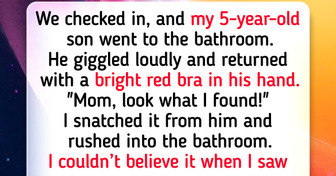
I Can’t Believe What My Ex-Husband Asked Our Daughter to Do
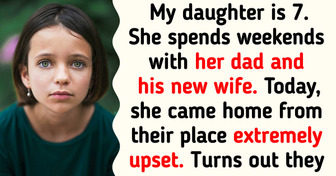
14 Times a Cheating Partner Got Busted in the Most Abrupt Way
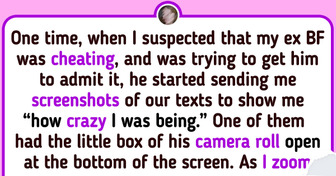
I Can’t Believe What My Fiancé Wants to Do With MY Inheritance
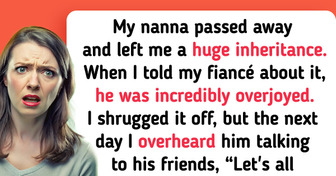
The 12 Hottest Summer Manicure Trends to Try This Season
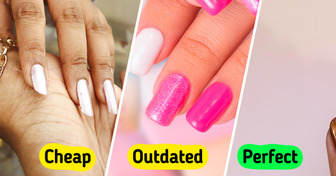
What Toxic Masculinity Is and Why Men and Their Loved Ones Suffer From It
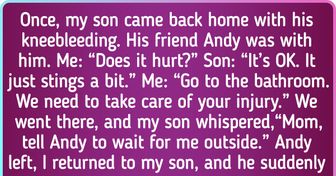
11 Things Parents Did That Ruined Their Kids’ Trust Forever
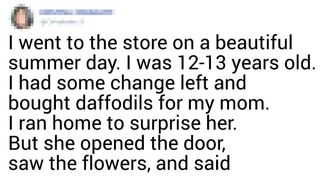
15+ People Who Had No Clue Whom Their Spouse Really Was
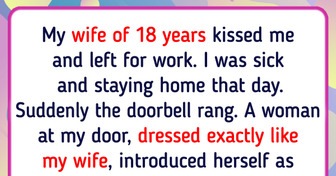
20 Perfect Coincidences That You Couldn’t Make Up If You Tried
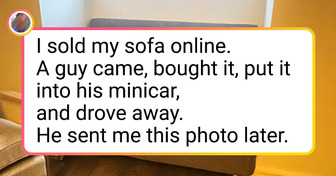
12 People Who Accidentally Found Hidden Cameras in Places Where They Shouldn’t Be
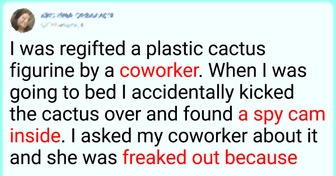
13 People Whose Lives Fell Apart Like a House of Cards
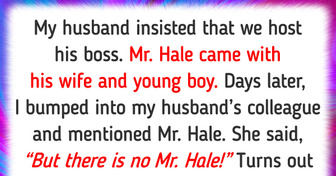
10 Romantic Encounters That Started Like a Dream but Ended Like a Nightmare
